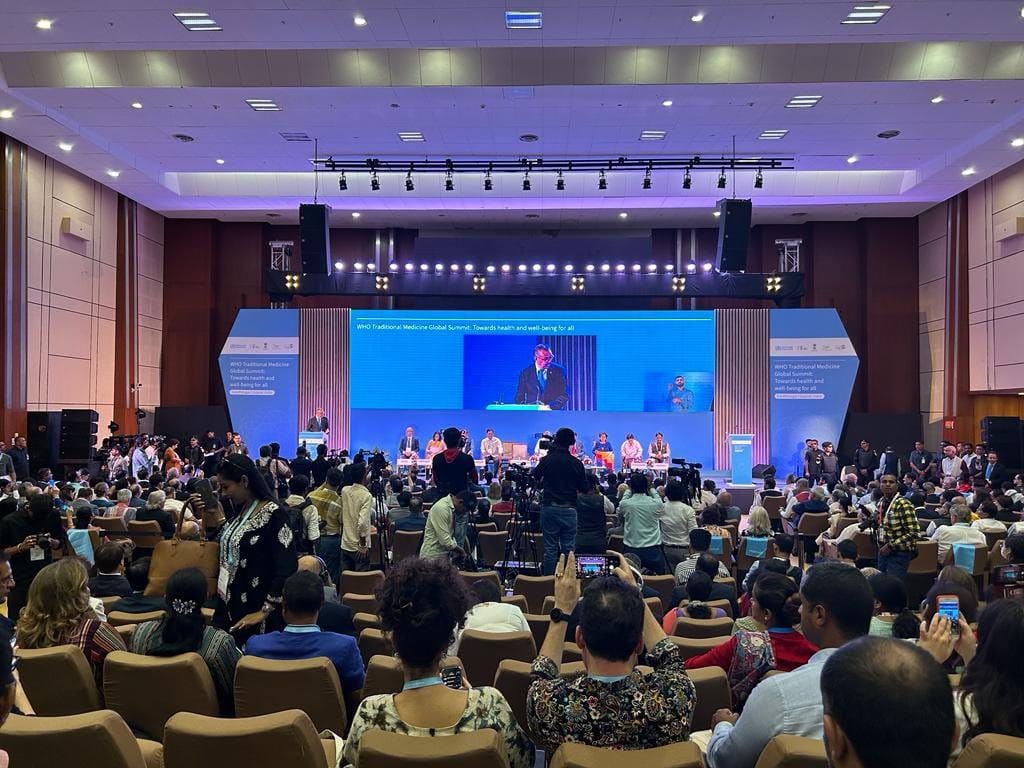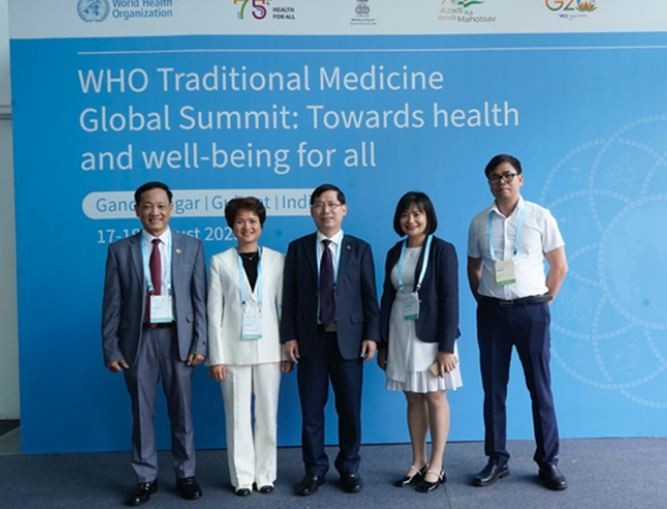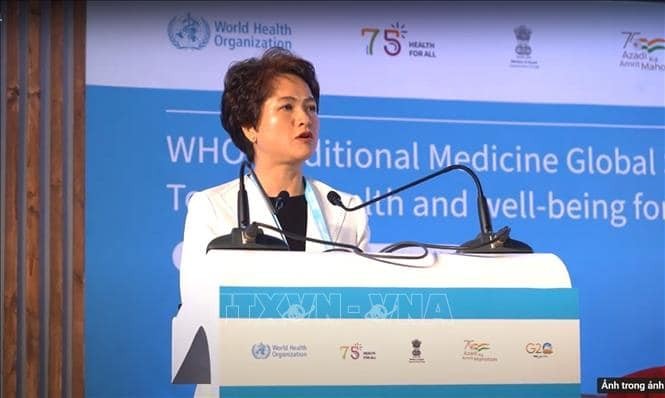The first WHO Traditional Medicine Global Summit took place in Gandhinagar, Gujarat, India. It was held alongside the G20 health ministerial meeting, in order to mobilize political commitment and evidence-based action on traditional medicine, which serves as the first point of contact for millions of people worldwide in addressing their health and well-being needs.
Vietnamese representatives shared the country’s policies on promoting traditional medicine at the inaugural Traditional Medicine Global Summit held in India from August 17-18, as reported by VNA.
 |
| The two-day summit, themed “Towards Health and Well-being for All”, explored the role of traditional complimentary and integrative medicine in addressing pressing health challenges and driving progress in global health and sustainable development. |
The summit, organized by the World Health Organization (WHO) and the Government of India, is part of the ongoing G20 Health Ministers’ Meeting held in Gandhinagar, Gujarat from August 17-19.
Associate Professor Dr. Vu Nam from the Central Hospital of Traditional Medicine, Nguyen Thi Huong Lien from Sao Thai Duong Joint Stock Company, and TH Group attended the summit.
 |
| Vietnamese delegates attending the first WHO Traditional Medicine Global Summit. Source: VTV |
During the discussion session, Nguyen Thi Huong Lien, co-founder and vice president of Sao Thai Duong Joint Stock Company, shared some positive points in Vietnam’s policies to encourage the development of traditional medicine, such as Decree 1893/QD-TTg 2019 on the traditional medicine development program until 2030 and Circular No. 39/2021/TT-BYT 2021 of the Ministry of Health on registration of traditional medicine.
She emphasized the important points in Vietnam’s policies to promote innovation in traditional medicine and made recommendations on strategic solutions.
In 2019, the Prime Minister also issued Decision 1893/QD-TTg to promote a program on developing traditional medicine in combination with modern medicine until 2030.
The program aims to ensure that all provinces and centrally-run cities have at least one traditional medicine hospital, and 95 percent of all hospitals have a traditional medicine faculty.
 |
| Nguyen Thi Huong Lien, Master of Pharmacy from Sao Thai Duong Joint Stock Company speaking at the session. Photo: VNA |
For centuries, traditional and complementary medicine has been an indispensable resource for the health of people and communities. It has been at the forefront of medicine and science, laying the foundation for conventional medical texts.
Around 40% of pharmaceutical products today have a natural product basis, and landmark drugs derive from traditional medicine, including aspirin, artemisinin, and childhood cancer treatments. New research, including on genomics and artificial intelligence, is entering the field, and there are growing industries for herbal medicines, natural products, health, wellness, and related travel. Currently, 170 member countries have reported to WHO on the use of traditional medicine.
In response to this increased global interest and demand, WHO, with the support of the Government of India, established the WHO Global Centre for Traditional Medicine in March 2022 as a knowledge hub with a mission to combine ancient wisdom and modern science for the health and well-being of people and the planet.
The WHO Traditional Medicine Centre scales up WHO’s existing capacity in traditional medicine and supplements the core WHO functions of governance, norms, and country support carried out across the six regional offices and headquarters.
Stunning chrysanthemum bloom lightens up grey winter
In the last days of the year, bright yellow carpets of chrysanthemums blooming together brighten up the road leading to Nghia Trai village, Tan Quang commune, Van Lam district (Hung Yen province).








